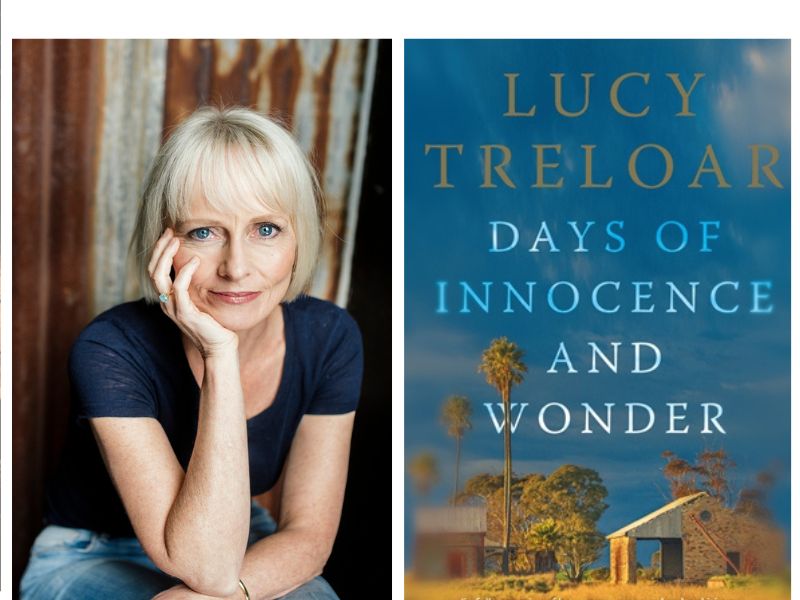In the opening pages of Lucy Treloar’s third novel, Days of Innocence and Wonder, a man approaches two girls outside their kindergarten. One girl willingly leaves with the stranger, never to be seen again. The other is left behind, her entire life forever changed by this moment.
While this dark premise could be the start of almost any grim crime thriller, Treloar has composed something far more nuanced. Like her earlier works, Days of Innocence and Wonder is an impressive literary achievement. Treloar weaves a tale of identity, loss and redemption in this highly evocative and powerful novel.
Most of the story occurs when “the girl left behind”, Till, flees COVID-struck Melbourne for regional South Australia. The 23-year-old finds the fictional Wirowie, loosely based on Terowie, on Ngadjuri land. The early tragedy has made a permanent impression on Till, who is hyper-vigilant and untrusting of strangers. In Wirowie, Treloar crafts a reflection of her heroine’s inner landscape, and as she changes, so does the town.
At first, Wirowie is a place located “nowhere”. Like our heroine, the town is lost and empty. In slowly unveiling the town and its occupants, Treloar’s skilled prose shines like that of an impressionist painter:
‘A little of the day’s warmth had caught in the earth and lifted around them, bringing some clean grassy scent. The ancient cars butted up like stonework and fabulously lit by the late sun. It turned their ice cream colours – duck egg blue, sherbet pink, dove grey, lilac rust – luminous and otherworldly.’
An ensemble cast of characters is gradually revealed. All of them are wrestling, in different ways, with being the “one left behind”. Treloar is skilled enough never to make these thematic connections seem forced or unlikely. Instead, the work gradually takes on the complex fractals of a crystalline structure, each moment or character reflecting another.
In activating the landscape, Treloar exercises the tropes of Australian Gothic fiction, effectively crafting a world that practises constant violence and terror against women. Charlotte Wood’s The Natural Way of Things wrestles with similar ideas, as does the ancestor of all colonial Australian Gothic fiction, Picnic At Hanging Rock. But unlike those two novels, Treloar’s work is surprisingly hopeful. The final pages are moving and justify using an (at first unsettling) anonymous narrator.
Read: Book review: Everything Under the Moon, edited by Michael Earp
The book switches between multiple timelines and the sections in Melbourne’s Brunswick, as it encounters Black Sunday and the repetitive trauma of COVID lockdowns, are not as compelling as in Wirowie. It’s not for lack of emotional impact, however. When I was away from the book, I felt Till’s anxiety ringing through me. Her hyper-vigilance transferred into my worldview. It’s a testament to Treloar’s impressive skill.
Days of Innocence and Wonder, Lucy Treloar
Publisher: Picador Australia
ISBN: 9781760982737
Format: Paperback
Pages: 336
Publication date: 31 October 2023
RRP: $34.99





